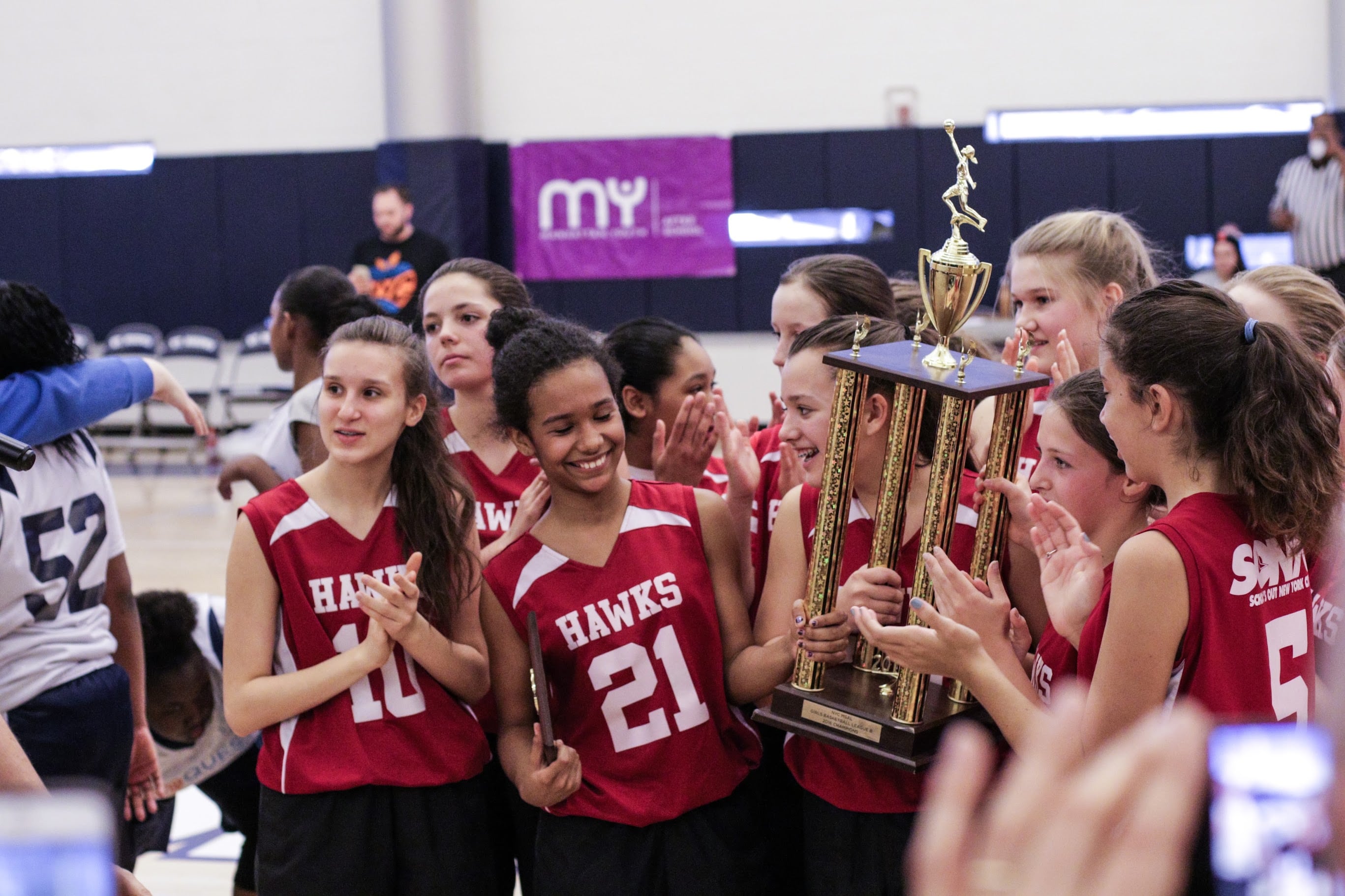New York City’s Public School Athletic League calls itself the largest sports league in the world, a city-run organization that provides opportunities for some 45,000 high school students to compete in soccer, bowling, cheerleading, table tennis, and more than a dozen other sports.
But when it comes to middle school, there are few chances for students to face off against other schools. The education department does not support a competitive league for students in grades six through eight.
A Manhattan gym teacher and local nonprofit have filled in that gap. John DeMatteo, who teaches at Manhattan Academy of Technology in Lower Manhattan, and the nonprofit Manhattan Youth Recreation and Resources, have spent years quietly building the Middle School Athletic League, or MSAL. It now includes about 125 schools, giving students the chance to wear a team jersey and travel the city to play against their peers.
Their dream is to grow the MSAL into an official program run by the education department, giving students earlier and dramatically expanded access to competitive play and providing more resources for schools to do so.
“It’s basically me calling up other coaches and [physical education] teachers and saying, ‘Hey we have this league. Do you want to join?’” DeMatteo said. “This falls into the category of, if there’s a will, there’s a way. Schools find a way to make it happen.”
The education department does have a program, called CHAMPS, to help middle schools start sports teams, but it’s mainly intended to provide after-school clubs like cheerleading. Schools can receive funding to pay teachers to coach and for equipment. There is limited support, however, for teams to organize competitions – a key part of what it means to play sports. PSAL provides “some” opportunities for middle schoolers to play against each other, according to an education department spokesperson, but the city did not provide any figures for how many students are given that chance.
DeMatteo left his job as an equities trader after the 9/11 terrorists attacks. Ever since, he has served as the physical education teacher and a coach at Manhattan Academy of Technology, or MAT, a prekindergarten through eighth grade school where most students are from low-income families. DeMatteo grew up playing sports from a young age. So when he became a teacher, he eagerly set up soccer and basketball teams, only to quickly realize there was no one to play against.
“I started reaching out to other schools and saying, ‘Look why don’t you start a flag football team? We have one and we could play,’” he said.
Since then, DeMatteo has teamed up with the Manhattan Youth, which helps pull field permits, schedule games, and make sure that referees get paid.
The city indirectly supports the work by providing grants to Manhattan Youth, which, in addition to running the MSAL, also fields teams through after-school programs at about 25 campuses across the city. The league had steadily grown within Manhattan throughout the years. It started taking off in the outer boroughs around 2018, said Zane Holmes — who serves as the director of the MSAL at Manhattan Youth — when the organization began establishing baseball teams in Brooklyn and the Bronx, where there have historically been limited opportunities to play.
Then COVID hit, and Holmes wasn’t sure the league would sustain its growth. MSAL has followed the rules put in place for high schools, including requiring students to be vaccinated.
Nonetheless, he has found that schools and students are even more eager for the chance to come together and play. He has noticed that a craving for camaraderie seems to have trumped the drive to win. Before this year, coming out on top “was the end all, be all” for students, Holmes said.
“But this year it’s the complete opposite. The goal is just to get out there again, have fun, and if you win the championship, that’s the cherry on top,” he said.
Holmes said the organization tries to be as inclusive, but New York City hasn’t had an encouraging track record when it comes to providing students equal access to opportunities to play sports. The education department recently settled a class action lawsuit that claimed Black and Latino students were systematically cut off from teams in their schools. As part of the settlement, the education department has agreed to set up more teams in underserved areas, but did not admit any wrongdoing.
At M.S. 131 in Chinatown, Principal Ben Geballe said that sports have long served as a way to bring students together. The school, where many students are newly arrived immigrants, taps its PTA budget to pay for uniforms. When the pandemic made remote learning a necessity, the school started an e-sports team for students to compete online.
Being back inside school buildings after many students spent over a year learning remotely has only made the opportunity to compete as part of a team more important. On Monday mornings, during town halls that used to be held in the auditorium but now are hosted on Zoom, Geballe said the school makes a point to shout out team victories or a player’s outstanding performance.
“As a draw to get them back into the swing of things and part of a community and excitement about going to school, I think for a subset of my students, it’s been invaluable,” he said.
Some of Geballe’s students only show up to school on time during basketball season – in fact, they come early to practice before class. He’s thinking about extending the season this year, maybe by arranging some informal scrimmages, because the team has made a notable difference for one student in particular who has struggled to settle back into school after falling behind during remote learning.
“I see him smiling more because he’s not acting out and bringing all that negative attention,” he said. “Sports are often the thing that reach some of our hardest to reach kids.”






